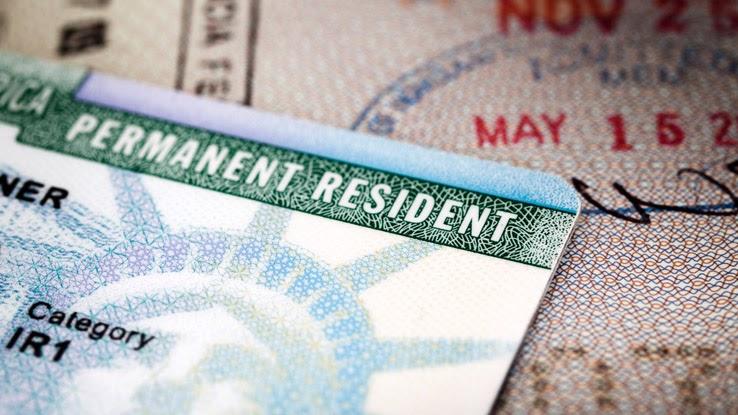Funny Ways Kids Do to Stop Their Parents From Seeing Their Report Cards

Permanent residents, also referred to as green card holders, may petition for their children to live in the United States as permanent residents as well. Since the U.S. Citizenship and Immigration Services (USCIS) defines a "child" as being an individual who is under the age of 21 and is unmarried, a permanent resident may also include his or her child's children in the petition if the child has any. A permanent resident may also petition for unmarried sons and daughters age 21 and older and include their children in the petition as well if they have any.
Who Does the USCIS Consider to Be a Petitioner's Child?
The immigration process has several criteria to consider an individual to be a petitioner's child officially. A genetic child who was born in marriage or out of wedlock is one of USCIS's most straightforward definitions of a "child" in the immigration process. The USCIS does not require any further legitimization for the child if the mother is petitioning.

Meanwhile, a father who is petitioning for his child may be subject to further legitimization, according to the laws of the father or child's place of residence. If the father's relationship to the child is not legitimized lawfully under any applicable laws, he should show proof that a father and child relationship existed between them before the child turned 21 years old and prior to the child's marriage if applicable.
A permanent resident may also petition for a genetic child who was conceived by artificial means through a surrogate mother. This is possible even though local laws may recognize the surrogate mother as the child's legal parent at the time of the child's birth.
Green card holders can also petition for a stepchild or an adopted child. Stepchildren are eligible for permanent residency if the marriage that created the step relationship occurred before the child turned 18 years old.
The adopted child, however, should be adopted by the petitioners before the age of 16. In some circumstances, those who were adopted before the age of 18 may also be eligible for permanent residency. These circumstances are discussed in the Adoption-Based Family Petition Process. The adoptive petitioners should likewise satisfy the required 2-year legal custody and joint residence with the child.
Green card holders who are petitioning their child have to prepare several documents when applying for permanent residency status for their child. Petitioners will be asked to provide a fully accomplished Form I-130, Petition for Alien Relative and pay its required fees. The petitioners must also provide evidence of their status with both front and back copies of their green card (Form I-551) and a copy of their foreign passport bearing the stamp that says they are permanent residents.

If the petitioner's name or his child's name changed, the petitioner should provide proof that the change was legal. The proof may be in the form of a marriage certificate, a decree of divorce, adoption decree or a court approval for an application for name change.
Green card holders who are petitioning their child should provide proof of their relationship. Genetic mothers and non-genetic gestational mothers should also include a copy of the child's birth certificate that was issued by civil authorities along with the other required documentation. Genetic fathers should provide these, along with copies of their marriage certificates with the child's mother or proof of the termination of the marriage if they are no longer married.
In case the father never married the child's mother and the child is illegitimate, he must provide evidence that he has established a father-son relationship with the child before the child turned 21. The evidence may include emotional involvement in the child's life or some form of financial support.
Stepparents will be required to provide documentation similar to those required from genetic parents. Adoptive parents will be asked to provide a copy of the child's original birth certificate, proof of the legality of the adoption and proof of legal and physical custody spanning at least two years with the petitioners acting mainly as parents to the child.
The V Nonimmigrant Visa
In special cases, green card holders may apply for a special type of visa that will allow their children to come to the U.S. even while their petition is awaiting approval. Lawful permanent residents or their children who have a pending Form I-130 application that was filed on or prior to December 21, 2000, may apply for a V Nonimmigrant visa (V visa).

The V visa is a special visa granted to eligible green card holders to allow them and their families to stay together while awaiting the approval of their child's permanent residency application. If the child is already in the U.S., the petitioner should file Form I-539 Application to Change Nonimmigrant Status and Form I-693 Report of Medical Examination and Vaccination Record. If the child is not in the U.S., he or she must go through a consular processing.
Source: https://www.questionsanswered.net/lifestyle/green-card-holder-sponsor-child?utm_content=params%3Ao%3D740012%26ad%3DdirN%26qo%3DserpIndex
0 Response to "Funny Ways Kids Do to Stop Their Parents From Seeing Their Report Cards"
Post a Comment